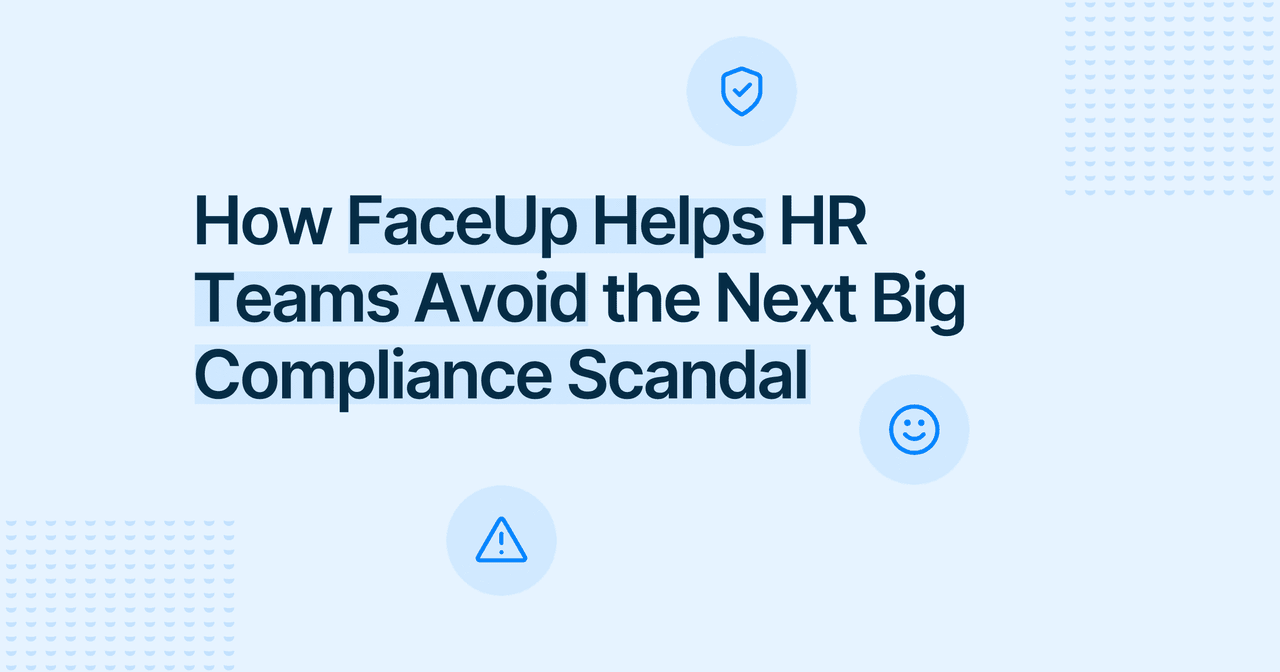



Modern Compliance Platform
Centralized whistleblowing and investigations in one secure platform.
Whistleblowing

Ry Hallada
Content Manager
Published
2024-09-20
Reading time
4 min


Table of contents
Subscribe to our newsletter
Whistleblowing is critical in modern organizations, providing a channel for employees to report unethical, illegal, or harmful activities. As companies strive to build transparent, accountable workplaces, establishing a culture where individuals feel safe to speak up is essential.
In an era of increasing scrutiny of compliance and corporate responsibility, whistleblowing's pros and cons come into sharper focus. One key distinction in whistleblowing is between internal and external reports.
Regardless of the approach, whistleblowers are important safeguards in maintaining corporate integrity. They help expose hidden issues that can damage the organization and its stakeholders.
A well-crafted whistleblowing policy offers several advantages that go beyond basic legal compliance. By implementing an internal reporting system, companies can uncover potential problems early. This allows for addressing issues before they escalate and fosters a culture of transparency.
Let’s explore 7 advantages of whistleblowing. The benefits protect the organization and actively contribute to its long-term success. These points further highlight the pros of whistleblowing and its role in creating a culture of integrity by fostering ethical behavior, ensuring legal compliance, and preventing future misconduct.
The advantages of internal whistleblowing are significant compared to external methods, as it allows organizations to handle issues discreetly before they reach the public eye. By being proactive, businesses can prevent the negative consequences of public exposure and improve their ability to keep control of their narrative. Therefore, understanding what are the advantages of whistleblowing is critical for companies looking to foster a healthy, transparent work environment.
While whistleblowing offers significant benefits, it also presents challenges that companies and employees must consider. Addressing these drawbacks is crucial in the interest of transparency and fairness. However, don’t be discouraged—recognizing these challenges is the first step toward resolving them.
So, what are the disadvantages of whistleblowing?
Understanding what are the disadvantages of whistleblowing is essential for companies to address these challenges proactively so that employees feel protected when raising concerns.
Many governments have implemented legal frameworks to protect whistleblowers. For instance, the Sarbanes-Oxley Act of 2002, the U.S. Dodd-Frank Act, and the Occupational Safety and Health Act provide protection for individuals who report misconduct. These protections are important when considering what are the pros and cons of whistleblowing.
Using legal requirements to create strong internal policies is a great way to protect employees and help organizations navigate compliance requirements. The advantages of whistleblowing policy being included in a company’s procedures are that it ensures compliance with legal standards and creates a safer, more open environment where employees are encouraged to report wrongdoings without fear of reprisal.
When considering whistleblowing advantages and disadvantages, it's clear that the benefits often outweigh the risks, specifically when organizations take the necessary steps. Companies can significantly reduce the risks by fostering a culture of openness and providing secure, anonymous channels for reporting.
Businesses can further enhance the whistleblowing experience by using platforms like FaceUp, which offer features such as anonymous reporting, high-level encryption, and customizable solutions. This ensures that the whistleblowing pros and cons are acknowledged and that the risks and benefits are balance.
The advantages and disadvantages of whistleblowing in an organization reveal a balancing act of protecting employees and safeguarding the company’s interests. However, when done correctly, whistleblowing can be an invaluable tool in promoting ethical practices, preventing misconduct, and creating a more transparent and open organization.
By adopting a clear whistleblowing policy and leveraging advanced tools like FaceUp’s whistleblowing system, companies can streamline the reporting process and protect their employees and reputation.
Book a demo with one of our whistleblowing specialists today! Now is the time to embrace whistleblowing for what it truly is: not a burden but a powerful asset. When you harness the power of whistleblowing and speak-up culture, you can protect and elevate your business to new heights of integrity and success.




Centralized whistleblowing and investigations in one secure platform.
Keep Reading

Alaa El-Shaarawi2026-03-038 min
Whistleblowing

Alaa El-Shaarawi2026-03-026 min
Legal & Compliance

Marie Roland2026-02-266 min
Legal & Compliance

Alaa El-Shaarawi2026-02-257 min
Legal & Compliance